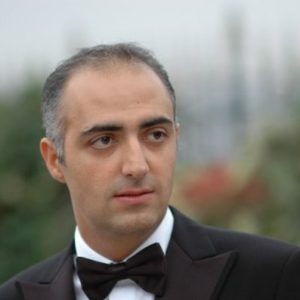Seed Capital
430th 1Mby1M Entrepreneurship Podcast With Nandini Mansinghka, Mumbai Angels Network
Nandini Mansinghka is CEO and Managing Director at Mumbai Angels Network, one of the oldest angel networks in India.
Podcast: Play in new window | Download
Subscribe: Apple Podcasts | Android | Google Play | Stitcher | TuneIn | RSS
1Mby1M Virtual Accelerator Investor Forum: With Sumner Douglas of BoomStartup (Part 3)
Sramana Mitra: Would you want to do another case study of companies that you’ve invested in and that you particularly think highly of?
Sumner Douglas: I’ll do one that I got involved in. A couple of years ago, I made the cardinal sin as the Managing Director and left to join one of our portfolio companies called Vutiliti. They create a device that enables you to hack the smart meter in infrastructure In smart cities and in residential areas and see real-time consumption of electricity, water, and natural gas. We can see that in a much more granular functionality back to the power companies or the utility companies as well as the end residence. >>>
429th 1Mby1M Entrepreneurship Podcast With Preeti Rathi, Ignition Partners
Preeti Rathi, Partner at Ignition Partners, discusses the changing dynamics of seed investing.
Podcast: Play in new window | Download
Subscribe: Apple Podcasts | Android | Google Play | Stitcher | TuneIn | RSS
1Mby1M Virtual Accelerator Investor Forum: With Alireza Rahnema of 7 Gate Ventures (Part 2)
Sramana Mitra: On that geography topic, what’s happening from an immigration point of view in Vancouver, Canada given the friction that’s happening now in America around immigration? Are you seeing a big influx of talented engineers that are also entrepreneurs from other places?
Alireza Rahnema: I must say this has vindicated our thesis with 7 Gate in the past couple of years. Even founders, with the background that we had, have been disbarred from going the route of a US immigration. We see a lot of these talented graduates from technical universities in the Middle East looking at Vancouver as an alternative to the States, given the political climate. >>>
428th 1Mby1M Entrepreneurship Podcast With Ondrej Bartos, Credo Ventures
Ondrej Bartos, General Partner at Credo Ventures based in Prague, focuses on investing in Central European startups. Their major success story is UiPath in robotics process automation that has raised $265 million at a $3 billion valuation. UiPath has over 2,100 customers and claims to have annual revenues of $150 million. We discuss the Romanian company in some detail.
Podcast: Play in new window | Download
Subscribe: Apple Podcasts | Android | Google Play | Stitcher | TuneIn | RSS
1Mby1M Virtual Accelerator Investor Forum: With Sumner Douglas of BoomStartup (Part 2)
Sramana Mitra: Tell me a bit about the geography. You said Salt Lake City. Does that mean that you’re investing only in new test startups? What is your policy?
Sumner Douglas: Definitely not. We definitely do take a lot of surge from Utah. The Utah tech game has grown significantly over the last couple of years. We see a huge amount of deal flow coming out of Salt Lake City and very high quality deals. We look at deals throughout the domestic US and internationally. >>>
427th 1Mby1M Entrepreneurship Podcast With Daniel Keiper-Knorr, SpeedInvest
Daniel Keiper-Knorr is Founder and General Partner at SpeedInvest, a venture firm based in Vienna. It’s great to see exciting energy and activity in Vienna, one of my favorite cities.
Podcast: Play in new window | Download
Subscribe: Apple Podcasts | Android | Google Play | Stitcher | TuneIn | RSS
1Mby1M Virtual Accelerator Investor Forum: With Alireza Rahnema of 7 Gate Ventures (Part 1)

Responding to a popular request, we are now sharing transcripts of our investor podcast interviews in this new series. The following interview with Alireza Rahnema was recorded in January 2019.
Alireza Rahnema, Principal and General Partner at 7 Gate Ventures, talks about the Vancouver startup ecosystem and his firm’s investment thesis.
Sramana Mitra: Let’s start by getting you acquainted with our audience. Tell us about you. Tell us about 7 Gate Ventures. What kind of investment strategy are you following? >>>
